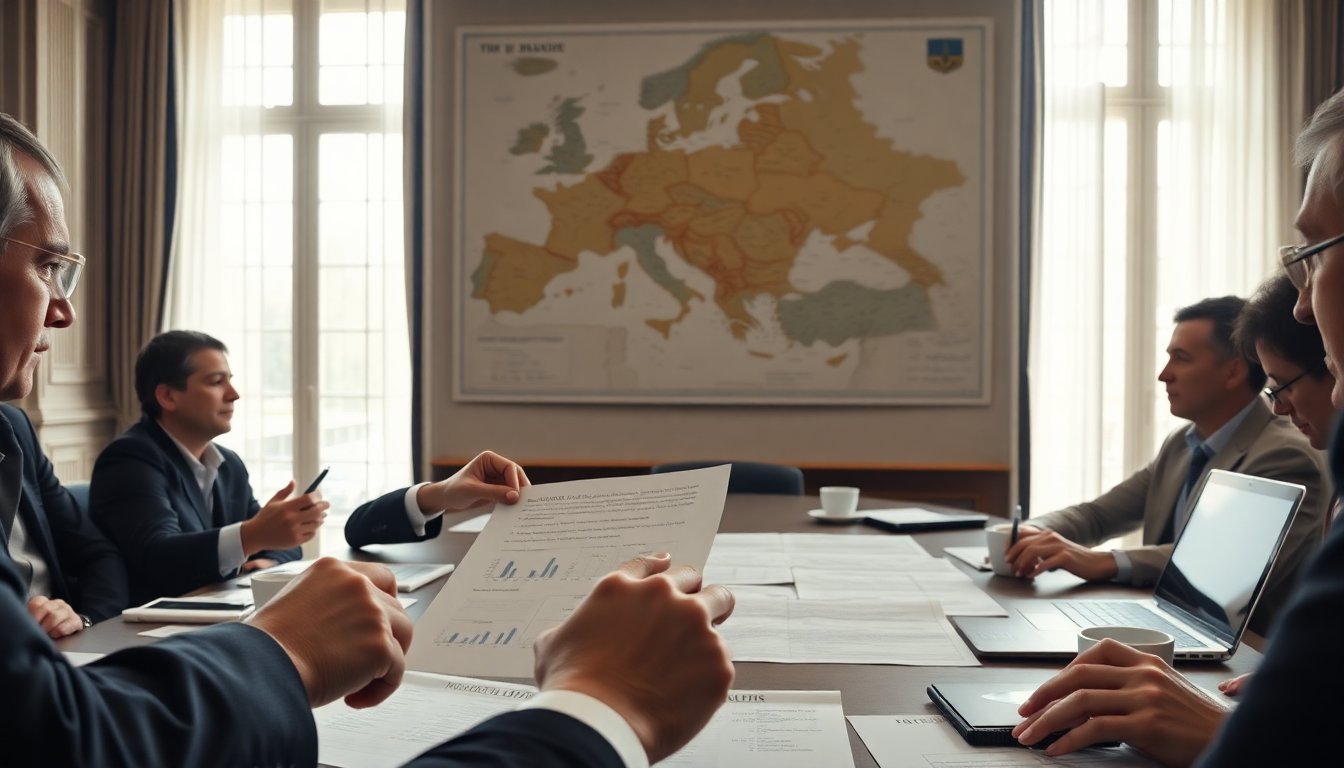Table of Contents
In the dynamic landscape of international diplomacy, Ursula von der Leyen, President of the European Commission, has become a pivotal figure in ongoing negotiations for a potential peace agreement for Ukraine. Recently, she expressed cautious optimism regarding discussions led by U.S. President Donald Trump, indicating that Europe sees a starting point for future dialogue following intense negotiations in Geneva.
However, the initial proposals presented by the Trump administration have raised alarms among European nations and Ukraine. A 28-point plan that heavily favored Moscow was met with significant concern, prompting a coalition of Ukrainian and European leaders to collaborate on refining the framework for peace.
Europe’s conditions for a peace deal
During her address to Members of the European Parliament in Strasbourg, von der Leyen articulated the essential demands that Europe insists on for any peace agreement. One of the foremost conditions is that Ukraine’s military capabilities must not be curtailed, as proposed in the initial U.S. plan. This stipulation aims to ensure that Ukraine remains fortified against potential future aggression from Russia.
Security guarantees for Ukraine
Von der Leyen emphasized the necessity of providing robust security guarantees to Ukraine as part of a comprehensive strategy to deter any future threats. She stated, “Ukraine must be equipped with credible long-term security arrangements, which are critical not only for its sovereignty but also for the stability of Europe as a whole.” This perspective underscores Europe’s commitment to safeguarding its borders and enhancing regional security.
Stance on territorial integrity
Another critical point raised by von der Leyen is the unwavering stance on territorial integrity. The European Commission president firmly declared that any peace agreement must not result in the alteration of Ukraine’s borders. The U.S. proposal, which suggested recognizing Crimea and parts of Luhansk and Donetsk as Russian territories, was categorically rejected. “Legitimizing such changes to borders would set a dangerous precedent that could lead to further conflicts in the future,” she noted.
Moreover, von der Leyen made it clear that Ukraine should maintain the autonomy to pursue its aspirations, including potential membership in the European Union. “If we start to legitimize the undermining of borders today, we invite more conflict tomorrow, and we cannot allow that to happen,” she asserted.
Financial support and future cooperation
In addition to discussions regarding military and territorial concerns, von der Leyen highlighted Europe’s plans to bolster Ukraine’s economy through financial support. The European Union aims to utilize frozen Russian state assets to facilitate a significant loan of €140 billion to assist Ukraine during these tumultuous times. “The Commission is prepared to present a legal framework for this initiative, although the timeline for its rollout remains uncertain,” she stated.
Collaboration with Ukraine in decision-making
Von der Leyen emphasized the importance of collaboration in any future decisions regarding the peace process. “It is crucial that any discussions about Ukraine include the voices of Ukrainians themselves, as well as European stakeholders,” she affirmed. This sentiment echoed the principle of “nothing about Ukraine without Ukraine”, advocating for inclusive dialogue in shaping the future of Ukraine.
Despite these optimistic developments, the road ahead remains fraught with challenges. European nations must navigate the complexities of international politics, as the Kremlin has already dismissed Europe’s counterproposals to Trump’s plan, indicating that negotiations will require continued effort and strategic finesse.
As the situation evolves, it is evident that Europe is positioning itself as a key player in the quest for lasting peace in Ukraine. With von der Leyen at the helm, the EU is committed to ensuring that any agreement respects Ukraine’s sovereignty and territorial integrity while fostering a collaborative approach to security in the region.


